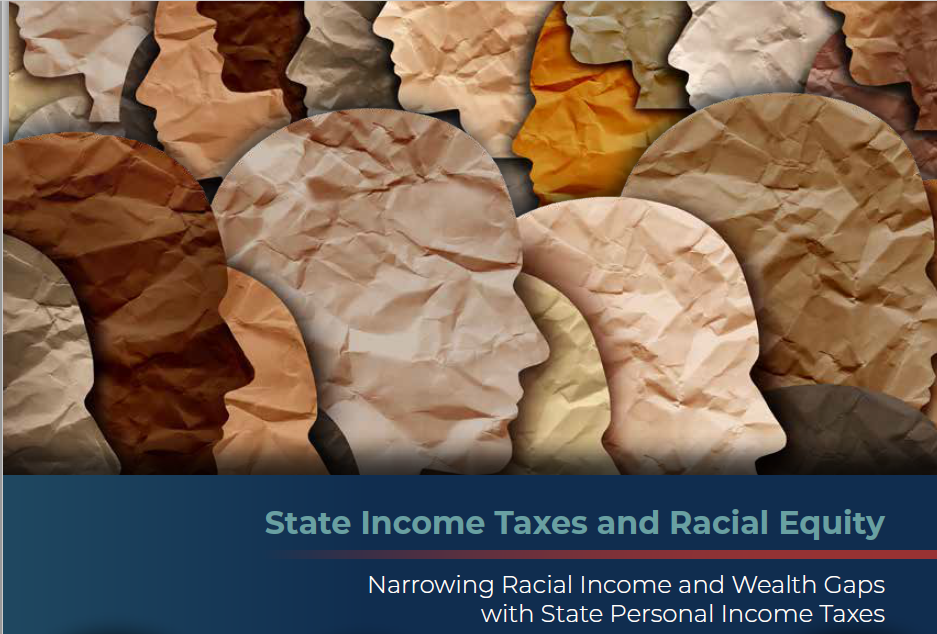Two prominent blue states made headlines this past week when they passed budget agreements that include relief for taxpayers, and fortunately, the budget plans don’t include costly tax cuts that primarily benefit the wealthy. For instance, in Illinois, lawmakers expanded the Earned Income Tax Credit and opted for temporary suspensions to the grocery tax and motor fuel tax over permanent changes. New York also suspended some of its gas taxes, provided one-time boosts to targeted tax credits, and sped up the implementation of middle-income tax cuts that were already in place. Elsewhere, Hawaii leaders came to a tentative agreement on $300 rebates for those earning less than $100,000 and $100 for those earning over that amount. While state lawmakers would benefit from thinking bigger when it comes to ideas about how to efficiently and effectively use revenue surpluses, forgoing the urge to pass major, permanent tax cuts—especially those that target the highest income earners—shows that not all cuts are the same.
Major State Tax Proposals and Developments
- Late last week in HAWAII, House Finance Chair Sylvia Luke and Senate Ways and Means Chair Donovan Dela Cruz reached a tentative agreement to issue tax rebates of $300 to people making below $100,000 and $100 to people making above $100,000. On Monday, Governor David Ige announced his support for the rebate proposal. – BRAKEYSHIA SAMMS
- ILLINOIS lawmakers passed their budget on Saturday which includes $1.8 billion in tax relief. Included in the package was an expansion to the state Earned Income Tax Credit which will now be available to childless workers ages 18-24 and those over 65, as well as ITIN filers. The package also includes a one-year suspension of the state’s 1 percent grocery sales tax, a six-month suspension to a 2.2 cent per gallon increase to the state’s motor-fuel tax, a $300 rebate check for homeowners and checks for households making under $200,000. – NEVA BUTKUS
- NEW YORK legislators and Gov. Kathy Hochul reached a budget agreement about a week behind schedule, and each component seems to have strengths and weaknesses. The package includes a pay increase for home care workers, though advocates are concerned it won’t fill major existing shortages. It also features an acceleration of previously approved “middle class” income tax cuts, though those cuts extend all the way up to $350,000 of income. It also increases credits for EITC and Child Tax Credit recipients, though those are one-time payments instead of ongoing enhancements. And it includes a seven-month gas tax suspension, though that will not be as effective as advertised and is considered a step backward for combatting climate change. – DYLAN GRUNDMAN O’NEILL
State Roundup
- ALABAMA Gov. Kay Ivey signed legislation that exempts the first $6000 of retirement income for seniors and increases the standard deduction by $1000. In other news, the decades-long fight to end the state grocery tax failed to pass this legislative session.
- CALIFORNIA lawmakers have several interesting tax proposals before them. Most intriguingly, legislators could approve a bill to significantly increase the state’s renter tax credit and make it refundable, which would be well-targeted to Californians most in need and is a best practice for advancing racial equity through tax policy.
- Among the other ideas on the table in CALIFORNIA, an additional income tax on very-high-income households has been proposed as a way to fund clean air and wildfire mitigation efforts. A 25 percent tax on home flippers remains under consideration. And Gov. Gavin Newsom’s proposal to send payments to vehicle owners on debit cards while also suspending diesel fuel taxes and gas tax inflation adjustments would have to be approved by the end of the monthv to take effect by July 1; but some lawmakers are pushing a more targeted alternative, pointing out that Newsom’s plan includes electric vehicle owners and high-income households.
- CONNECTICUT policymakers are turning to well-designed and targeted tax proposals, like an EITC expansion and state Child Tax Credit, after starting their session by rushing through two ill-conceived tax holidays.
- A new DELAWARE bill would reduce the state’s real estate transfer tax from 2.5 percent to 1.5 percent while local jurisdictions would continue to collect 1.5 percent of the sale’s value.
- Lawmakers in HAWAII are expected to extend the state’s EITC for another six years and finally make it refundable.
- A bill to statutorily preserve LOUISIANA Gov. John Bel Edwards’ changes via executive order to the state Industrial Tax Exemption Program passed out of committee. The changes would ensure local governments have a future seat at the table when approving property tax exemptions on industrial projects.
- MASSACHUSETTS lawmakers in the House unveiled their nearly $50 billion budget, which includes major investments in early education, healthcare, and criminal justice reform, among other things. Members of the House, however, did not incorporate any of the tax cuts Gov. Charlie Baker included in his budget proposal.
- MINNESOTA House Democrats have announced their tax plan as a response to a plan issued by Senate Republicans. The House plan includes childcare tax credits for young children, one-time child rebates and a tax exemption on Social Security income for seniors making under $75,000.
- House Republicans in MISSOURI have introduced a bill to issue one-time tax credits for Missouri taxpayers. The credit would amount to $500 for single filers and $1,000 for joint filers.
- An OKLAHOMA House bill to cut each income tax bracket by 0.25 percent passed the state’s Senate Finance Committee. It now heads to the Senate Appropriations Committee.
- Two bills, one in the House and one in the Senate, to end the sales tax on groceries advance in OKLAHOMA in their respective committees. They still have a way to go before getting to the governor’s desk.
- The Senate Finance committee in SOUTH CAROLINA is looking into how to pay for the $2 billion in tax cuts that the Senate has already unanimously passed.
- TENNESSEE created a new franchise and excise tax credit for TV, film and video game producers that is expected to cost the state nearly $16 million in FY 26-27.
- In VIRGINIA, Gov. Glenn Youngkin had proposed a three-month gas tax suspension. House Democrats proposed a $50 rebate for vehicle owners instead. Lawmakers are still divided over the two-year state budget.
- WEST VIRGINIA lawmakers are debating the merits of a gas tax holiday vs. a rebate for vehicle owners. Readers likely know where ITEP stands on this. Lawmakers are reconvening for a special session on April 24th.
What We’re Reading
- Samantha Waxman over at the Center on Budget and Policy Priorities published a blog highlighting how Massachusetts residents would be better served by improvements to families’ economic well-being instead of costly permanent tax cuts like those proposed by the governor.
- ProPublica released another report in their series on the secret tax filings of the mega-rich—this time shedding light on their exorbitant wealth and strategies they used to shield it from taxation.
If you like what you are seeing in the Rundown (or even if you don’t) please send any feedback or tips for future posts to Aidan Davis at [email protected]. Click here to sign up to receive the Rundown via email.





